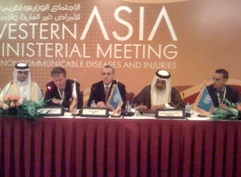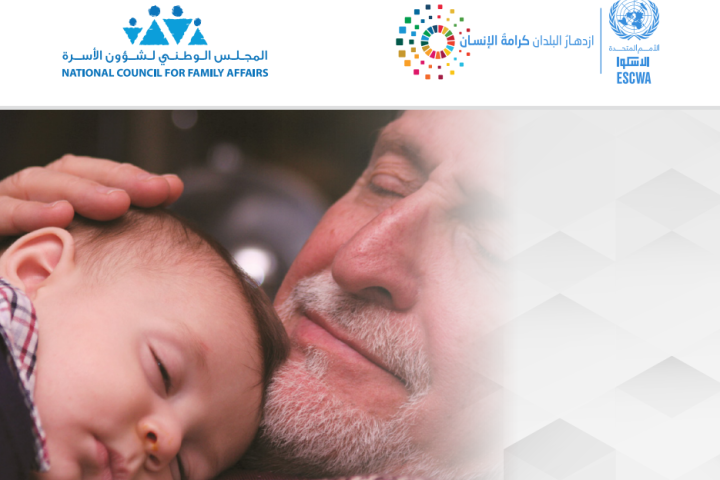As a cautious world braces itself for the repercussions of the financial crisis and the spread of H1N1 virus, better known as the Swine Flu, ESCWA Executive Secretary Bader Omar AlDafa warned against the spread of non-communicable diseases, including cardiovascular diseases and diabetes, and injuries caused by road traffic. While not being in the eye of the media like epidemics that spread occasionally, non-communicable diseases top the causes of death chart, and trigger high economic losses.
AlDafa made these remarks while inaugurating the Western Asia Regional Ministerial Meeting on Non-communicable Diseases and Injuries, a close cooperation effort between ESCWA, the United Nations Economic and Social Council (ECOSOC) and the World Health Organization (WHO). Entitled "Addressing Non-communicable Diseases and Injuries: Major Challenges to Sustainable Development in the 21st Century", was held on 10-11 May 2009 in Doha. It came in support of the 2009 Economic and Social Council's Annual Ministerial Review (AMR), to be held this coming July in Geneva, and to bear the theme "Implementing the internationally agreed goals and commitments in regard to global public health".
Like other world regions, ESCWA countries witness a surge in non-communicable diseases, registering the highest toll globally in road traffic injuries and fatalities, Al Dafa said, noting the psychological and economic repercussions of such losses of life and disabilities on the individual and the family.
Today, over half of the population in the ESCWA region lives in urban areas, AlDafa continued. It ensues that promoting healthy urban environments should become a priority. This is not only the responsibility of Ministries of Health. Ministries of Planning, Finance, Transport, Education, Environment and Social Affairs are an integral part of the solution, as is civil society and the private sector. AlDafa called for the integration of health education in school programmes and the assurance of road safety. He also noted the necessity to encourage physical activity, including sports, and ensure the availability of public recreational spaces. "We must reduce occupational hazards and address the needs of migrant workers," he told the meeting.
UN Undersecretary-General called for regional cooperation in combating pandemics, such as the swine flu, and in coordinating initiatives to address key regional health risks. He asserted that the challenge before the ESCWA region was great, warning against the impacts of the economic crisis facing the world on public health.
Over two days, regional and international experts addressed the main risk factors for non-communicable diseases and highlighted new initiatives and national strategies to combat these diseases. They also addressed the tragic loss of life due to road accidents and other injuries, and proposed interventions for prevention.
Photo courtesy of ECOSOC




